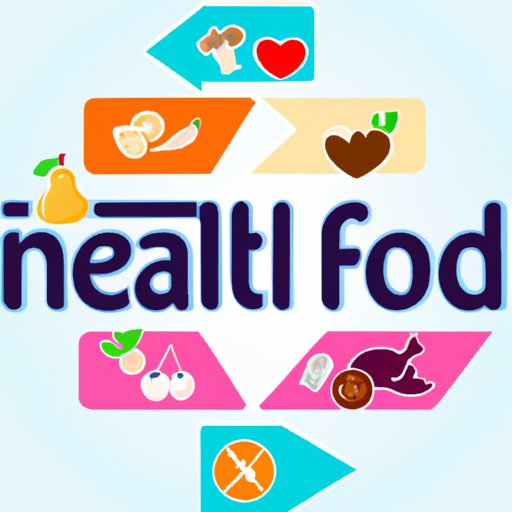Introduction
Good nutrition is key to achieving optimal health and well-being. Eating a balanced diet that includes a variety of nutrient-dense foods will provide your body with the fuel it needs to function properly. In this article, we’ll discuss what good nutrition is, the benefits of following a nutritious eating plan, and how to make healthy choices when it comes to food.

Healthy Foods and Their Nutritional Benefits
Eating healthy requires making smart food choices. Fruits and vegetables are packed with essential vitamins, minerals, and antioxidants that help protect against disease and maintain overall health. Protein sources such as lean meats, fish, eggs, beans, and nuts are important for building muscle, repairing tissue, and providing energy. Grains and legumes like quinoa, oats, buckwheat, and lentils are rich in fiber and other nutrients. Dairy products and other calcium-rich foods are essential for strong bones and teeth.
Reading Food Labels
When shopping for groceries, it’s important to read food labels to ensure you’re purchasing items that are nutritionally beneficial. Ingredients lists can help you identify potentially unhealthy additives or preservatives. Nutrient content labels provide information on calories, fat, protein, carbohydrates, vitamins, and minerals. It’s also important to pay attention to serving sizes and consider whether a product is low in sodium, sugar, and saturated fat. By understanding food labels, you’ll be better equipped to make healthy choices.
Vitamins, Minerals, and Other Nutrients
In addition to macronutrients like carbs, fats, and proteins, our bodies require micronutrients such as vitamins, minerals, and other trace elements. Vitamins A, C, D, E, K, and B-complex all play critical roles in maintaining health. Minerals such as iron, calcium, magnesium, and zinc are necessary for proper bodily functions. While these nutrients can be obtained from foods, supplements may be recommended in certain cases.
Different Diets and Nutritional Needs
There are many different diets and nutritional needs depending on an individual’s lifestyle and health goals. Vegetarians avoid animal products but may still consume dairy, eggs, and other plant-based foods. Vegans eliminate all animal products from their diets. Gluten-free diets exclude wheat and other grains containing gluten. People who follow these types of diets may need to supplement with certain vitamins and minerals to ensure they’re getting the proper nutrition.
Conclusion
Good nutrition is essential for optimal health and well-being. Eating a balanced diet that includes a variety of nutrient-dense foods provides the body with the fuel it needs to function properly. Healthy foods such as fruits and vegetables, lean proteins, grains and legumes, and dairy products are loaded with essential vitamins, minerals, and other nutrients. Reading food labels can help you make informed decisions when shopping for groceries. Different diets may require additional supplementation to ensure adequate nutrition. By following a healthy eating plan, you can enjoy the many benefits of good nutrition.
(Note: Is this article not meeting your expectations? Do you have knowledge or insights to share? Unlock new opportunities and expand your reach by joining our authors team. Click Registration to join us and share your expertise with our readers.)
